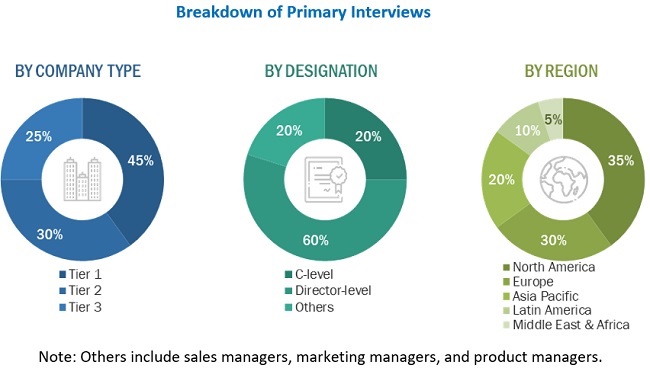With a forecasted increase from $457 million in 2021 to $600 million by 2026 at a 5.6% CAGR, Gastrointestinal Stent Market is witnessing rapid expansion. Research delves into trends, pricing, patent analysis, and insights from conferences. GI stents offer solutions for obstructed GI tracts and are used for tumor treatment, postoperative sealing, and drug delivery. The rising prevalence of GI cancers, lifestyle changes, and a preference for minimally invasive procedures are key market drivers.
Browse in-depth TOC on “Gastrointestinal Stent Market”
197 – Tables
50 – Figures
223 – Pages

The growth of this market is mainly attributed to the rising prevalence of GI cancers and other digestive diseases, and changing lifestyles, increasing healthcare expenditure on gastrointestinal procedures, and increasing preference for minimally invasive surgeries. However, complications associated with GI stenting procedures and High cost of the procedure and limited reimbursement in developing countries are factors expected to restrain the market growth. Moreover, the development of biodegradable and drug eluting stents and booming healthcare sector in emerging markets is expected to provide lucrative opportunities for the growth of the market in the coming years.
Increasing prevalence of bile duct cancer and chronic liver disease to drive the demand for biliary stents.
Based on product, the gastrointestinal stent market is segmented into biliary stents, duodenal stents, colonic stents, pancreatic stents, and esophageal stents. The biliary stents segment accounted for the largest share of 44.3% in 2020. The Esophageal Stents segment is estimated to grow at the highest CAGR during the forecast period. The increasing prevalence of bile duct cancer and chronic liver disease is one of the prominent factors responsible for the growth of the biliary stents segment. Moreover, The increasing incidence of biliary diseases and the growth in the number of surgical procedures for the treatment of biliary diseases are the other major factors that are expected to support the growth of this market segment during the forecast period.
The self-expanding metal stent segment will dominate the gastrointestinal stent market, by material
Based on material, the GI Stent Market is segmented into self-expanding metal stents and plastic stents. Self-expanding metal stents are further sub-segmented into nitinol, stainless steel, and other metal stents. Factors such as the increased demand for Self-expanding metal stents due to advantages offered by these stents such as ease of insertion, a lower possibility of dislodgment or migration, longer patency. Metal stents are usually made of stainless steel, nitinol, cobalt-chromium, and platinum-chromium with or without coating. Self-expanding metal stents are used for the treatment of benign gastrointestinal leaks and perforations. These stents act as a support to keep the gastrointestinal tract open and provide easy unobstructed drainage of food and water.
The Gastrointestinal Cancers segment to register the fastest growth in the gastrointestinal stent market, by application
Based on application, the GI Stent Market is segmented into biliary diseases, irritable bowel syndrome, and gastrointestinal cancers. The gastrointestinal cancers segment is further categorized into colorectal cancer, stomach cancer, esophageal cancer, and pancreatic cancer. The biliary diseases segment accounted for the largest share in 2020. The gastrointestinal cancers segment is projected to have the highest CAGR during the forecast period. The growth of this segment is attributed to the increased prevalence and incidences of gastrointestinal cancers. For instance, according to a report by the American Cancer Society, Colorectal Cancer Facts & Figures 2020-2022, in 2020, there were an estimated 104,610 new cases of colon cancer and 43,340 cases of rectal cancer diagnosed in the US
The hospitals and clinics segment accounted for the largest market share in 2020
Based on end users, the gastrointestinal stent market is segmented into hospitals and clinics and ambulatory surgical centers. The hospitals and clinics segment accounted for the largest share of in 2020. The large share of this segment can be attributed to the large number of endoscopic retrograde cholangio-pancreatography (ERCP) and percutaneous transhepatic cholangiography (PTC) procedures performed in hospitals for different disease indications, favorable reimbursement scenarios, and increased government initiatives to provide quality treatment for gastrointestinal diseases.
North America was the largest regional market for Gastrointestinal Stent market in 2020
The Gastrointestinal Stents market is segmented into five major regions, namely, North America, Europe, Asia Pacific, Latina America, and the Middle East and Africa. In 2020, North America accounted for the largest share. The large share of North America in the global market is attributed to the rising geriatric population, high incidence of gastrointestinal diseases, favourable reimbursement scenario, and presence of key market players. Some of the major players in this market are Boston Scientific Corporation (US), C.R. Bard (US), Becton, Dickinson and Company (US), Merit Medical Systems (US), CONMED Corporation (US), Cook Medical (US), Cantel Medical (US), and Hobbs Medical (US).
Some of the prominent players in this Gastrointestinal Stent Market are Boston Scientific Corporation (US), Cook Group (US), Medtronic plc. (Ireland), ELLA-CS, s.r.o. (Czech Republic), Becton, Dickinson and Company (US), Merit Medical Systems (US), CONMED Corporation (US), Cantel Medical (US), Olympus Corporation (Japan), Taewoong Medical (South Korea), Micro-Tech(Nanjing) Co., Ltd. (China), Endo-Flex GmbH (Germany), MI-Tech (South Korea), Hobbs Medical Inc. (US), QualiMed (Germany), UK Medical (UK), CITEC (China), Medorah Meditek Pvt. Ltd. (India), BCM Corporation (South Korea), and Leufen Medical GmbH (Germany).
Content Source:
https://www.marketsandmarkets.com/Market-Reports/gastrointestinal-gi-stent-market-167758126.html
https://www.marketsandmarkets.com/PressReleases/gastrointestinal-gi-stent.asp
